“Everything can be taken from a man but one thing: the last of the human freedoms, to choose one’s attitude in any given set of circumstances, to choose one’s own way.”
— Viktor E. Frankl
December 7, 1941
Nearly eighty years ago, Pearl Harbor was bombed by Japan in a surprise attack. The next day, President Roosevelt delivered his Day of Infamy speech to Congress which promptly declared war on Japan. Three days later, Germany declared war on the United States and the United States responded by declaring war on Germany.
Very few Americans recall these momentous events. Eight decades is a long time and events of the 1940s can seem like ancient history. We think of Pearl Harbor with the same frame of reference as people in 1941 thought of the outbreak of the Civil War eighty-one years earlier. Still, it is our responsibility to remember.
As the seventy-fifth anniversary of the end of the Second World War approached, I decided to pursue some reading on the subject. Although intimidating in terms of length, I ordered William L. Shirer’s history of Nazi Germany, The Rise and Fall of the Third Reich. In addition, I read Viktor Frankl’s Man’s Search For Meaning.
The Murky Fog of History
World War II is quickly receding into the murky fog of history. Within another quarter century, there will likely be no one alive who still has any personal recollection of the conditions leading up to the war, the war itself, the many atrocities perpetuated by Axis forces, and the eventual triumph of humanity over unmistakable evil. When no one is left to tell their personal stories, we will be left with the accounts that they painstakingly left for us, scarred permanently by a conflict that forever defined the remainder of their lives and shaped the rest of the twentieth century.
Seventy-five years now separates us from the end of the Second World War. Eighty years separated the end of the Second World War from the end of the Civil War. And eighty-two years separated the end of the Civil War from the end of the Revolutionary War. Each of these periods of separation is about the length of time that an average modern human being might expect to live — a full lifetime of separation. The way in which many of us now think of the Second World War is probably similar to how people in the 1940s thought of the Civil War, and how people in the 1860s thought of the Revolutionary War.
World War II was a long time ago.
The atrocities committed by Adolf Hitler’s Third Reich seem to defy adequate description. Although exact figures are necessarily imprecise, according to the United States Holocaust Museum, Nazi Germany murdered over seventeen million civilians and prisoners of war.1 The overall death toll of World War II, military and civilian, in all its theaters is estimated at 75 to 80 million people, of which 50 to 55 million were civilians.
World War II was the deadliest military conflict in history.
As Joseph Stalin, another tyrant of the twentieth century once said, “A single death is a tragedy; a million deaths is a statistic.” We risk looking at the overall statistics and forgetting that each of the individuals behind these numbers was a human being, someone with a purpose for living, and someone who was deprived of that life.
On May 8, 1945, Nazi Germany surrendered to Allied forces ending the war in Europe. Japan would surrender a little over three months later, on August 15. The bloodiest conflict in human history was finally over and those who survived had to make sense of it, had to find meaning in all that had been lost, and in many cases had to rediscover their purpose in life.
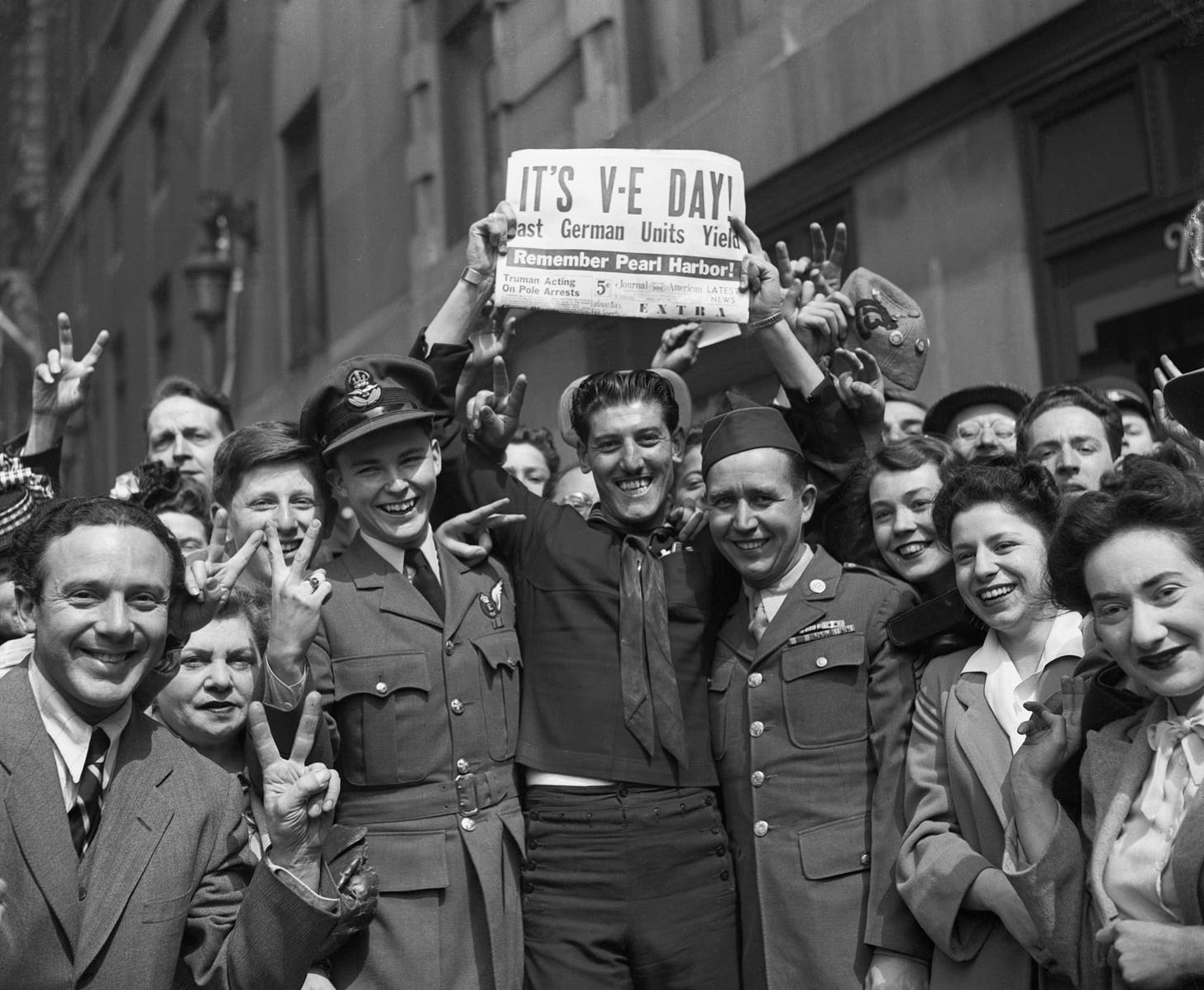
The Rise and Fall of the Third Reich
Nearly all of us, as school children, were informed of the horrors of World War II in history classes and, in many cases, by our parents and grandparents. Yet few students at a young age are presented with the true depth of what took place in that war, both due to constraints of time and the common reluctance to look too closely at unpleasant realities of the past.
As adults, we can more carefully examine the past, with many decades of our own life experience to draw from as well. It was in that spirit, as the seventy-fifth anniversary of the end of the war approached, that I decided to read William Shirer’s epic account of Nazi Germany, The Rise and Fall of the Third Reich.
William Shirer was an American journalist and foreign correspondent who lived in France for several years starting in 1925 and later lived and worked in Nazi Germany from 1934 to 1940. As a print journalist and a radio reporter, Shirer was a witness to the rise of Adolf Hitler and helped to write the “first draft of history” as a war correspondent traveling on the front lines with German forces.
Facing increasing calls to publish misleading accounts of the war, Shirer left Nazi Germany in December 1940 but continued his reporting, later returning to post-war Europe to cover the Nuremberg trials. One could hardly ask for a better single-volume book if the goal is to read a sweeping account of how an unemployed and penniless veteran of the First World War somehow built around himself such a powerful cult of personality that he succeeded in not only gaining power but nearly achieving a total and complete conquest of Europe.
Books of the magnitude of Shirer’s account of the Third Reich defy summarization. One should not even attempt to do so. I had not planned to do so and I did not read it with the intention of reviewing it. The 1,147 page tome simply seemed like an ambitious, yet achievable goal for my reading project for the month of April 2020, a continuation of the practice of reading one “serious” book every month by dedicating an hour of focused concentration early in the morning.
Although I was aware that I would be reading the book close to the seventy-fifth anniversary of the end of the war, it was with some surprise that I found myself reading the account of Adolf Hitler’s suicide nearly seventy-five years to the day after it took place on April 30, 1945. Hitler did not appear to fear death itself — the man who puts a gun into his mouth and pulls the trigger welcomes death as an escape — but he was a coward nonetheless because he did not face death in a final confrontation with his enemies, nor did he face death after a trial in which he would have to account for his crimes.
The problem with reading a book like Shirer’s is that one comes away from it still asking the unanswerable question of Why? We know what Hitler did, we know how he did it, and we know the racial animus and hatred that was the reason behind what he did, but what in the human condition creates monsters like Hitler in the first place and is there any sense we can make of it? None of the 1,147 pages of The Rise and Fall of the Third Reich can possibly answer these questions adequately because they are questions of an existential nature beyond the scope of what a historian can deliver.
Man’s Search For Meaning
“He who has a why to live for can bear almost any how.”
— Nietzsche
The victims of World War II were far greater than the number who lost their lives, suffered grievous personal injuries, or lost every earthly possession they had. Millions of people lost loved ones and risked falling into a depression and despair from which there would be no escape. The emotional toll of the war no doubt resulted in the ruin of millions of human lives in the years and decades that followed – human lives that never reached their fulfillment due to the losses they directly suffered and their memories of the past. In the aftermath of all the suffering, millions continue to ask the unanswerable question of Why? And to question the very meaning behind their continued existence.
Survivors of the Nazi concentration and extermination camps faced tremendous struggles in the years following their liberation. After months or years of indescribable suffering and diminution of their human dignity, survivors had to navigate the world looking for a renewed purpose in life, all the while wondering why they had survived when so many had perished.
Viktor E. Frankl’s account of his three years in Nazi concentration camps was not an attempt to document history, but was instead a documentation of “personal experiences, experiences which millions of prisoners have suffered time and again.” Man’s Search For Meaning, however, is much more than one man’s account of his years in the Theresienstadt, Auschwitz-Birkenau, Kaufering, and Türkheim camps. Frankl was in his late 30s at the time of his captivity and was an accomplished Austrian neurologist and psychiatrist.2 He brought with him an preexisting view of human psychology that was further refined by the searing conditions of his long captivity.
In 1940, two years after the Nazi annexation of Austria, Frankl joined the Vienna Rothschild Hospital as the head of the neurology department. As the only hospital in Vienna still admitting Jews, Frankl helped many patients escape the Nazi “euthanasia” program for the mentally ill before the hospital was eventually shut down. Frankl was told that he qualified for an American visa in 1942 but he chose not to go because doing so would mean abandoning his elderly parents who would not be able to accompany him. In September 1942, Frankl and his family were separated and deported to concentration camps.
Frankl suffered all of the widely reported humiliations that greeted new arrivals at a concentration camp — that is, for those who were not immediately put to death upon arrival. He was deprived of all of his possessions except the clothes he wore, but he attempted to hide the manuscript of a book in his coat pocket. In his mind he had to “keep this manuscript at all costs; it contains my life’s work.”
But the manuscript was lost.
The physical manifestation representing purpose of Viktor Frankl’s life up to that point was gone. If he did not live to recreate the book from the contents of his mind, his ideas would be lost forever. No one else in the world could replicate what he needed to do in order to fulfill his purpose.
Part one of Man’s Search for Meaning is Frankl’s personal account of his observations, not only of his own reactions, but the reaction of other prisoners to the different “phases” of camp life. Frankl recounts the first days of captivity in which prisoners often continued to get by on an “illusion of reprieve”, or the false promise of imminent escape or rescue. This was often followed by apathy, a form of emotional death, in which many prisoners simply gave up on life.
One unmistakable sign that a man’s days were numbered was when he actually smoked a cigarette rather than using it as currency to trade for food, even though everyone was in the process of slowly starving. As the disgust and horror of what the men saw progressed to habituation to death, some men refused to even rise to relieve themselves or to work, not even responding to torture and violence.
Yet even in the midst of the horror of the camps, Frankl observed that one can still have a sense of purpose and a sense of inner meaning amid suffering. “Man can preserve a vestige of spiritual freedom, of independence of mind, even in such terrible conditions of psychic and physical stress.” One may not be able to control one’s ultimate destiny within such conditions, but there were still decisions to be made, decisions that would have to be made under conditions of indescribable suffering.
Frankl chose to volunteer for medical duties in a camp containing typhus patients. Why did he do it rather than simply give up and await death?
“Against the urgent advice of my friends (and despite the fact that almost none of my colleagues offered their services), I decided to volunteer. I knew that in a working party I would die in a short time. But if I had to die there might at least be some sense in my death. I thought that it would doubtless be more to the purpose to try and help my comrades as a doctor than to vegetate or finally lose my life as the unproductive laborer that I had been.”
Man’s Search for Meaning, p. 49
Frankl knew, perhaps innately or more due to the nature of his work, that he had to find a reason to persist, a cause greater than himself that he could devote his time to, or that he himself would soon perish. Of course, he understood that his ultimate fate was still likely to be death, but there would be meaning in that death and in his suffering. His alternative was to succumb to the fate of the majority of men in the camp:
“Instead of taking the camp’s difficulties as a test of their inner strength, they did not take their life seriously and despised it as something of no consequence. They preferred to close their eyes and to live in the past. Life for such people became meaningless.”
Man’s Search for Meaning, p. 72
Crucially, Frankl also well understood the connection between a human being’s mental state and his physical well-being, as he gave the example of a friend who died of typhus in a state of mental despair:
“Those who know how close the connection is between the state of mind of a man — his courage and hope, or lack of them — and the state of immunity of his body will understand that the sudden loss of hope and courage can have a deadly effect. The ultimate cause of my friend’s death was that the expected liberation did not come and he was severely disappointed. This suddenly lowered his body’s resistance against the latent typhus infection. His faith in the future and his will to live had become paralyzed and his body fell victim to illness…”
Man’s Search for Meaning, p. 75
Perhaps most unique about the first part of Frankl’s book is that he makes a point of emphasizing that all human beings, regardless of their circumstances, do have free will and the ability to make choices.
This choice was most clearly made by the Kapos, Jewish collaborators who helped the Nazi SS run the concentration camps. These men had chosen to make themselves complicit by aiding and abetting their Nazi masters in exchange for better living conditions and a chance to survive longer than ordinary prisoners. They betrayed their fellow prisoners for the transitory pleasures of cigarettes, larger rations, and better accommodations.
In contrast, Frankl recounts the rare cases where a Nazi guard showed him some minimal human kindness, such as providing an extra piece of bread, and the story of a camp commander who had personally spent his own money for medication for prisoners.
Frankl did not believe in collective punishment and held that humans kindness can be found in all groups, even those groups such as the Nazi SS that as a whole are universally condemned:
“From all this we may learn that there are two races of men in this world, but only these two — the “race” of the decent man and the “race” of the indecent man. Both are found everywhere; they penetrate into all groups of society. No group consists entirely of decent or indecent people. In this sense, no group is of “pure race” — and therefore one occasionally found a decent fellow among the camp guards.”
Man’s Search for Meaning, p. 86
Years later, long after the war was over, Victor Frankl was asked by a group of students to express in one sentence the meaning of his own life. Frankl wrote down his response but before revealing what it was, he asked the students to guess what he had written down. One of the students guessed that “The meaning of your life is to help others find the meaning of theirs.” Frankl replied: “That was it, exactly. Those are the very words I had written.”
Frankl is best known for his therapeutic doctrine called Logotherapy. In part two of the book, Frankl attempts to provide the basics of Logotherapy “in a nutshell”, warning the reader that the treatment of the subject would necessarily be a brief account of what took twenty volumes of scholarly work to fully describe.
The basic premise of Logotherapy is that man’s search for meaning is the primary motivation in his life.
The term Logotherapy is derived from the Greek word Logos, which has many interpretations and translations but ultimately denotes the concept of “meaning”. Striving to find a meaning in life and then seeking to actualize that meaning is the primary motivational force in man. In other words, the “will to meaning” is what makes life worth living.
Some people are aimless, in which case Logotherapy aims to help such a patient find meaning in his or her life. However, there is also the case of what Frankl calls “existential frustration” which occurs when a person has a sense of purpose in life, but the path to achieving that purpose is somehow blocked which can result in neuroses. Some level of tension between what a person wishes to accomplish and what he or she has accomplished is necessary for mental health:
“I consider it a dangerous misconception of mental hygiene to assume that what man needs in the first place is equilibrium or, as it is called in biology, “homeostasis,” i.e., a tensionless state. What man actually needs is not a tensionless state but rather the striving and struggling for a worthwhile goal, a freely chosen task. What he needs is not the discharge of tension at any cost but the call of a potential meaning waiting to be fulfilled by him.”
Man’s Search for Meaning, p. 105
Those who fail to find the purpose of their lives risk falling into an “existential vacuum” in which a person risks either simply doing what other people want him to do or what conforms to what other people are already doing. Frankl warned, in 1960, that such problems will grow increasingly common as automation replaces work done by human beings and people gain more leisure time. He also warns of a crisis of existential vacuum among the elderly. Those who lack a “will to meaning” also risk falling into a “will to power” or a “will to money” — the pursuit of objectives that ultimately will not yield mental satisfaction.
Many have already discovered their purpose in life, but Frankl cited surveys showing that a large percentage of his students exhibited signs of existential vacuum. How do you discover the meaning of life if you do not already know what it is?
Logotherapy states that we can discover the meaning in life in three different ways:
By creating a work or doing a deed.
By experiencing something or encountering someone.
By the attitude we take toward unavoidable suffering.
Frankl emphasizes that the third route to discovery — suffering — is not one to be sought out because deliberately subjecting oneself to suffering in pursuit of enlightenment amounts to masochism, not meaning. Yet, for those who do find themselves in untenable situations from which they see no means of escape, one can still find meaning in how we react to adversity. We can also reframe the situation. If we cannot change a situation, we always have the option of changing ourselves instead.
In a postscript to his book, written in 1984, Frankl states that the ultimate goal for many people — happiness — is not one that can be directly pursued. Instead, it must ensue.
If a human being has a reason to become happy, he or she will achieve happiness. And the reason to become happy is invariably the achievement of one’s purpose in life. As an analogy, he points out that one cannot will oneself to laugh, at least not authentically. Laugher instead ensues when something humorous happens. Someone who directly seeks happiness, whether through wealth or some other means, risks not finding it if the manner in which the goal was achieved did not ensue from a life of meaning.
Rather than further describing Logotherapy, the interested reader would do better to simply read Man’s Search for Meaning since it only takes a few hours to read both parts of the book. The video appearing below of Frankl describing his theories in 1963 should also be of interest.
A baby born this year, in 2020, has an excellent chance of living into the twenty-second century. An eighty year old living in 2100 will look at the Second World War, 155 years in the past, just as we look at the Civil War from our vantage point today. It will appear as a series of terrible events in the dim past, replete with the stories of human beings long since dead who they never knew personally. Yet, it is important to ensure that future generations see World War II as more than a distant disaster because the world cannot afford to descend into such a condition ever again.
Frankl, writing in 1984, noted that the world is in a bad state, but that everything could become still worse unless everyone does their best — meaning attempt to fulfill their human potential and their reason for being. The stakes could not be higher, especially if one accepts the duality of two “races” of men — the decent and the indecent. Frankl closes his postscript as follows:
“So let us be alert — alert in a twofold sense:
Since Auschwitz we know what man is capable of.
And since Hiroshima we know what is at stake.”
Man’s Search for Meaning, p. 154
We simply cannot afford to assume that World War II will always remain the world’s bloodiest conflict.
There remain individuals like Adolf Hitler in our world and should someone of similar depraved outlook and temperament ever gain control of a country with a nuclear arsenal, the future of humanity will clearly be at stake. Whether there is a 2100 at all, in terms of human civilization, depends on the decent “race” of mankind prevailing in the decades to come.
If you found this article interesting, please click on the ❤️️ button and consider sharing this issue with your friends and colleagues.
Thanks for reading!
Copyright and Disclaimer
Nothing in this newsletter constitutes investment advice and all content is subject to the copyright and disclaimer policy of The Rational Walk LLC.
Your privacy is taken very seriously. No email addresses or any other subscriber information is ever sold or provided to third parties. If you choose to unsubscribe at any time, you will no longer receive any further communications of any kind.
The Rational Walk is a participant in the Amazon Services LLC Associates Program, an affiliate advertising program designed to provide a means for sites to earn advertising fees by advertising and linking to Amazon.com.
The exact number of civilians and captured soldiers killed by the Nazi regime and its collaborators will never be known with precision. The United States Holocaust Museum estimates that 6,000,000 Jews, 7,000,000 Soviet civilians, including 1,300,000 Soviet Jews, 3,000,000 Soviet prisoners of war, 1,800,000 non-Jewish Polish civilians, 312,000 Serb civilians, 250,000 disabled people living in institutions, up to 250,000 Roma Gypsies, 70,000 repeat criminals, 1,900 Jehovah’s Witnesses, and an undetermined number of homosexuals and German political opponents were murdered by the Nazi regime.
See Viktor Frankl’s Wikipedia page for a brief summary of his early years.


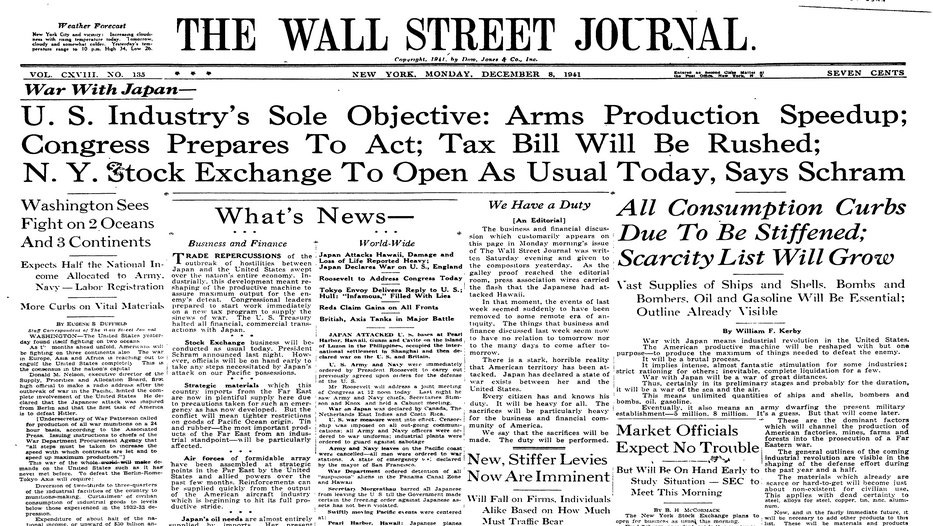
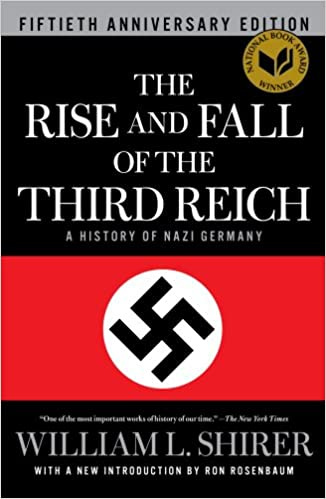
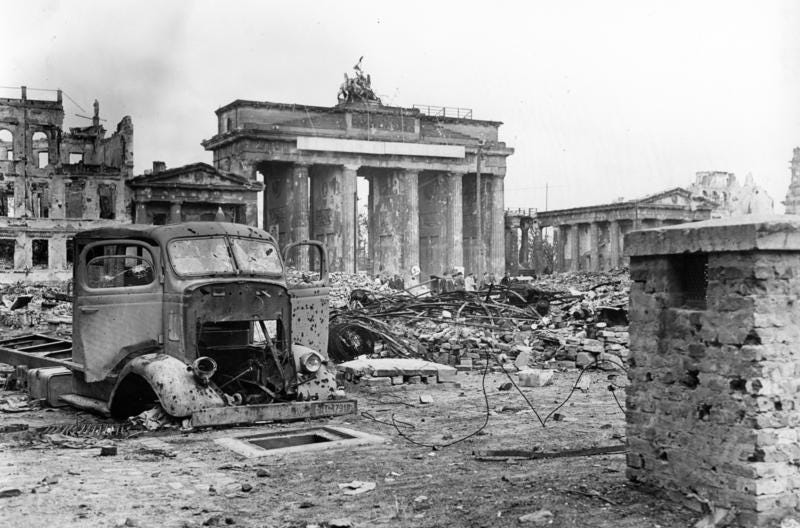
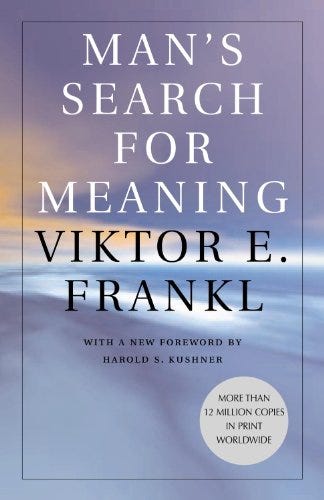
When I was growing up in the 1960s, I met many concentration camp survivors. Honestly, their survival wasn't about a search for meaning. It was about survival. Sometime one had to lie. Sometimes one had to steal. Sometimes one had to do risky things. Having a skill often helped. The Nazis would keep you alive for that skill, at least for a while. Some survivors, and there is lots of obvious survivor bias in this, developed theories and ideas to themselves going. A surprising number of people knew about the Trachtenberg system of speed arithmetic developed by a survivor who solved mathematical problems to keep sane. It's a decent enough system, but no one used it even in the years before calculators. It was developed to keep one man sane. I wouldn't overly analyze a survivor's writing about how they survived or necessarily accept it as truth. A lot of the story of World War II is people doing what they had to.
I read Shirer's book as a teenager staying at a Borscht Belt resort in the Jewish Alps. I'd take the book and a rowboat out on Lake Charles and read. It was a teenager's way of avoiding people. Lake Charles has since been drained and the hotel we stayed at long gone. It was an excellent book, a chilling tale of the rise of the Nazi reich and the war in Europe. I often wondered if something very similar would have happened if Hitler had never been born, and I concluded that it would have all happened without Hitler. It's not like there was a Hitler in Japan. There were fascists, drunk on the power of the modern state, machine warfare and political repression. Then, as now, and as in the Civil War, there were people with a grievance and a means of expressing that grievance violently. That was all it takes.
It's easy to underestimate what appear to be decadent societies. That was one of the lessons of both wars. The civilian North beat the militarist South. The effete Allies beat the brute strength of the fascists. All that talk and bluster was no match for military strength. We are thousands of years from single combat. For millennia, wars have been won by the groups that could convince those fighting that the fight was worthwhile, the ones who could organize and turn ordinary citizens into effective soldiers. The Romans weren't better fighters than anyone else. They got their asses kicked reliably. Their strength was in convincing their allies to want to throw their lot in with them. It might look like weakness, but that has long been the source of real strength.